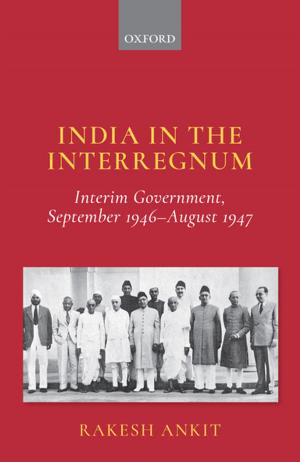Indian Nuclear Policy
Nonfiction, Social & Cultural Studies, Political Science, Politics, Arms Control, International, International Security| Author: | Harsh V. Pant, Yogesh Joshi | ISBN: | 9780199093830 |
| Publisher: | OUP India | Publication: | July 16, 2018 |
| Imprint: | OUP India | Language: | English |
| Author: | Harsh V. Pant, Yogesh Joshi |
| ISBN: | 9780199093830 |
| Publisher: | OUP India |
| Publication: | July 16, 2018 |
| Imprint: | OUP India |
| Language: | English |
India has come a long way from being a nuclear pariah to a de facto member of the nuclear club. The transition in its nuclear identity has been accompanied by its transformation into a major economic power and underlines a pragmatic turn in its foreign-policy thinking. This book provides a historical narrative of the evolution of India’s nuclear policy since 1947, as the country continues its pursuit for complete integration into the global nuclear order. Situating India’s nuclear behaviour in this context, the book explains how India’s engagement with the atom is unique in international nuclear history and politics. Aided by declassified archival documents and oral history interviews, it focuses on how status, security, domestic politics, and the role of individuals have played a key role in defining and shaping India’s nuclear trajectory, policy choices, and their consequences.
India has come a long way from being a nuclear pariah to a de facto member of the nuclear club. The transition in its nuclear identity has been accompanied by its transformation into a major economic power and underlines a pragmatic turn in its foreign-policy thinking. This book provides a historical narrative of the evolution of India’s nuclear policy since 1947, as the country continues its pursuit for complete integration into the global nuclear order. Situating India’s nuclear behaviour in this context, the book explains how India’s engagement with the atom is unique in international nuclear history and politics. Aided by declassified archival documents and oral history interviews, it focuses on how status, security, domestic politics, and the role of individuals have played a key role in defining and shaping India’s nuclear trajectory, policy choices, and their consequences.















